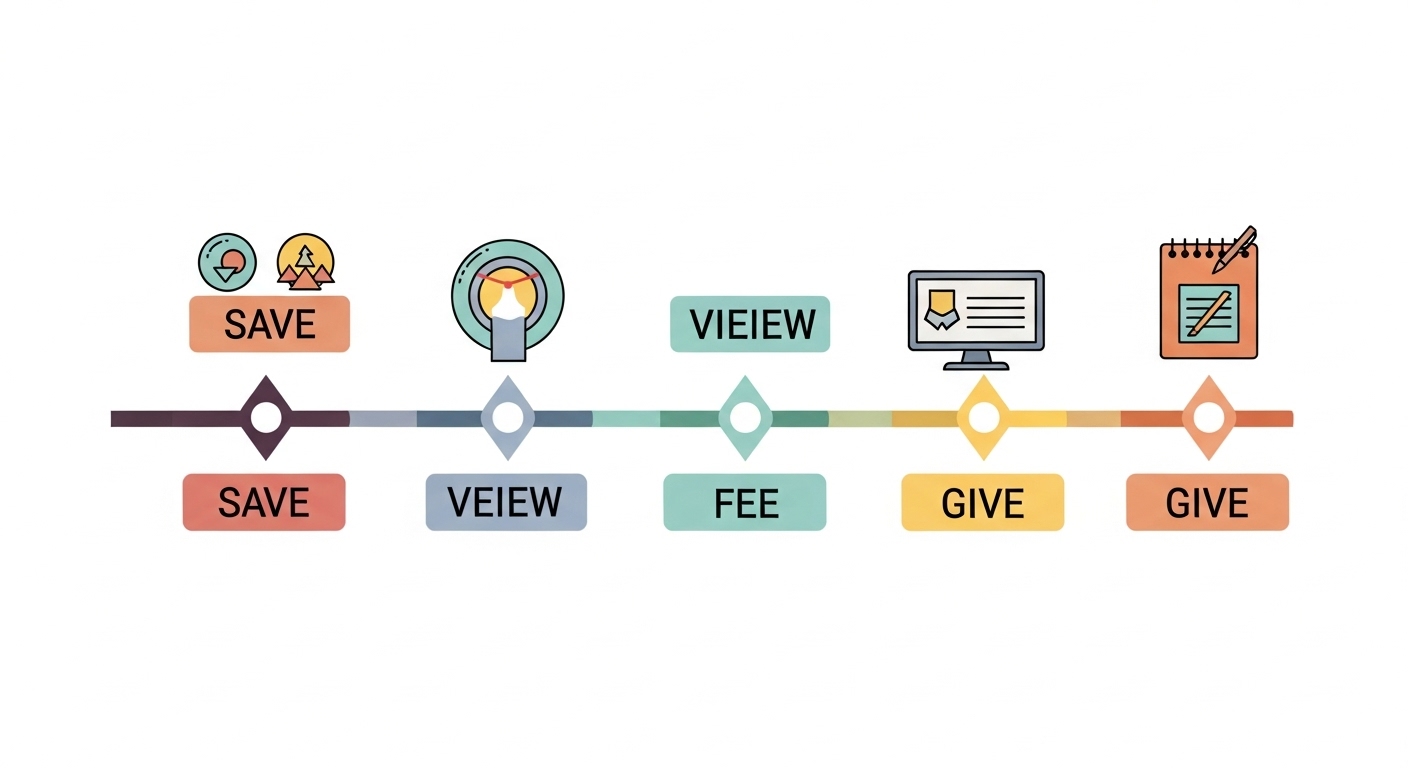Debt And Discipline: Proverbs’ Warning About Borrowing

You’ve probably seen a dozen headlines about rising debt, broken budgets, and the pressure to keep up with lifestyle expectations. If you’re wondering what the Bible — and specifically the book of Proverbs — has to say about borrowing, you’re in the right place. Proverbs offers blunt, practical advice about money, self-control, and the real cost of debt. Throughout this article, you’ll see how Proverbs about debt aren’t just ancient sayings; they’re clear-minded guidance that can shape how you think, spend, and plan.
Proverbs about debt often come with hard images: a borrower who becomes the lender’s slave, a person who signs for another’s promise and loses sleep over it, or the one who impulsively pledges without counting the cost. Those images aren’t intended to make you fearful — they’re intended to wake you up. In what follows, you’ll get a biblical overview, practical steps to avoid or handle debt, and ways to cultivate discipline so you don’t end up trapped by the convenience of borrowing.
Why Proverbs Focuses on Debt
When you read Proverbs, you find a steady drumbeat about wisdom, prudence, and the consequences of foolishness. Money is a frequent example because how you handle it reveals your heart. Proverbs about debt repeatedly highlight both the moral and practical hazards of borrowing.
One of the clearest and most quoted verses is short and stark: “The rich rule over the poor, and the borrower is slave to the lender.” See Proverbs 22:7. That doesn’t just warn about finances — it’s a warning about power, dependence, and the loss of freedom. When you borrow to fund lifestyle choices or emergencies without a plan to repay, you trade autonomy for immediate relief.
Other verses take a more procedural tone. Proverbs warns you not to co-sign or guarantee a friend’s loan lightly: “Do not be one who shakes hands in pledge or puts up security for debts.” See Proverbs 22:26-27. Think of these warnings as both spiritual and practical. Spiritually, they protect your integrity and relationships; practically, they prevent cascading financial problems.
What Proverbs Actually Say About Borrowing
Proverbs is rich with short, punchy lines that teach through images and consequences. When you collect those lines, a picture emerges: wisdom values planning, patience, and the refusal to live above your means. For example, Proverbs admonishes you to escape rash commitments: “If you have been trapped in something you didn’t intend, get yourself out quickly.” See Proverbs 6:1-5.
There’s also praise for prudent accumulation: “The wise store up choice food and olive oil, but fools gulp theirs down.” See Proverbs 21:20. That kind of foresight is the very opposite of habitually relying on borrowing.
Proverbs about debt also emphasize foresight and prevention. “A prudent person foresees danger and takes precautions. The simpleton goes blindly on and suffers the consequences.” See Proverbs 27:12. Borrowing often becomes necessary when you haven’t prepared for known risks; discipline in spending and saving reduces that necessity.

The Moral and Spiritual Angle: Freedom vs. Bondage
When you study Proverbs about debt, notice that the language of freedom and bondage appears more than once. This isn’t simply about making a budget; it’s about how choices shape your capacity to love, serve, and live generously. Debt can shift your priorities from covenantal concern for others to constant pressure to earn and pay.
Romans reframes the idea with the line, “Let no debt remain outstanding, except the continuing debt to love one another.” See Romans 13:8. While that doesn’t outlaw borrowing in every case, it places ethical responsibility on how you manage obligations. If your debt impairs your ability to love — to give time, resources, or emotional energy — it has become spiritually dangerous.
Think of discipline as a way to preserve relational space. When you’re under the thumb of lenders, you’ll be tempted to prioritize cash flow over Sabbath rest, hospitality, or unexpected giving. Proverbs about debt press you to see that finances are relational as well as numerical.
How Discipline Protects You from Bad Debt

Discipline doesn’t sound glamorous, but it’s the single most reliable guard against destructive borrowing. Proverbs praises steady, small choices that accumulate into security. “Dishonest money dwindles away, but whoever gathers money little by little makes it grow.” See Proverbs 13:11.
Discipline shows up in simple habits: tracking what you spend, setting priorities for purchases, delaying gratification, and building an emergency fund. These practices reduce the temptation to borrow for lifestyle or convenience. They also help you say “no” when lenders entice you with quick credit and low introductory rates that balloon later.
Practical Steps You Can Take Right Now

You don’t need to wait for the perfect moment to start disciplining your money. Proverbs about debt encourage practical, incremental steps. Begin with an honest inventory: list your expenses, your debts, and your monthly income. From there, build a modest emergency cushion — even a small one can prevent a credit card swipe that spirals into years of payments.
Follow these core actions:
- Track and categorize spending so you know where money goes.
- Create a realistic budget that aligns with your values.
- Prioritize high-interest debt for accelerated repayment.
- Avoid new long-term obligations until you’ve stabilized cash flow.
- Keep a “no-credit” rule for discretionary purchases for a season.
These steps are consistent with Proverbs’ emphasis on foresight and careful planning. You’re creating space between impulse and action — the space where wisdom can operate.
What If You’re Already in Debt? Biblical Principles for Getting Out

If you’re already under heavy debt, Proverbs about debt isn’t intended to heap shame on you; it’s meant to guide you back to freedom. The first biblical step is confession and clarity: admit the situation, stop adding to it, and map a credible repayment plan. Proverbs encourages prudent negotiation and wise counsel: “Plans fail for lack of counsel, but with many advisers they succeed.” See Proverbs 15:22.
Forgiveness of debt is an important biblical idea, too — think of the Jubilee concept — but Proverbs focuses you on responsibilities you can control. Negotiate with creditors when possible, consolidate wisely only if it reduces costs, and seek budgeting help from trustworthy sources. Avoid shady “quick-fix” payday advances that institutionalize a cycle of borrowing.
The Role of Community and Wisdom

You don’t have to climb out of debt alone. Proverbs consistently points to the value of wise companions: “Walk with the wise and become wise, for a companion of fools suffers harm.” See Proverbs 13:20. If you’re feeling overwhelmed, contact a trusted friend, a pastor, or a financial counselor who shares your values. The right community can offer accountability, practical help, and emotional support.
Some churches and ministries offer biblically-grounded financial coaching. These resources can align practical techniques with spiritual disciplines like generosity and contentment. You’ll find that community can help you keep perspective so you avoid substituting financial success for spiritual growth.
Teaching Your Family and Kids About Money
If you’re responsible for raising children — or influencing younger family members — Proverbs about debt suggests that instruction should be early and practical. Teach kids the relationship between work and money, the habit of saving, and the value of contentment. Proverbs repeatedly praises training and correction: “Start children off on the way they should go, and even when they are old they will not turn from it.” See Proverbs 22:6.
Practical tools include age-appropriate allowances, chores tied to pay, and family conversations about budgeting. When children see consistent discipline modeled in daily life, they internalize habits that protect them from predatory borrowing later.
Contentment, Work Ethic, and the Heart

Proverbs about debt not only address external practices; they aim at the heart. Contentment is a recurring virtue in Scripture, and it’s crucial for resisting “consumerism” that normalizes debt. Jesus warned about divided loyalties: “You cannot serve both God and money.” See Matthew 6:24. If your identity is tied to things you do not yet own, you’ll be vulnerable to borrowing to maintain an image.
Work ethic matters too. Proverbs praises diligence and rejects laziness: “The sluggard craves and gets nothing, but the desires of the diligent are fully satisfied.” See Proverbs 13:4. A steady focus on productive work, coupled with smart budgeting, is one of the best antidotes to chronic debt.
When Borrowing Might Be Wise
You might wonder if the Bible forbids borrowing outright. It doesn’t. Proverbs about debt warn against unhealthy dependence but don’t rule out all borrowing. Borrowing for strategic reasons — like investing in a small business, financing education with clear return prospects, or buying a modest home you can repay — can be a responsible choice when paired with prudent planning.
When you consider borrowing, consider these checks:
- Is the purpose for long-term value or urgent need?
- Can you clearly afford the payments without sacrificing basic care for family or generosity?
- Have you compared options and counseled with wise advisers?
- Have you considered alternatives like delayed purchase, increased savings, or smaller options?
If you answer these honestly and plan conservatively, borrowing can be used without surrendering freedom.
Cultural Pressures and Consumer Credit

A big reason people end up in debt is social pressure. Modern marketing is engineered to make you feel like you’re missing out unless you buy now. Credit cards and buy-now-pay-later schemes make it easy to say “yes” today and face the bill later. Proverbs about debt speak directly into this environment by training you to weigh long-term consequences over short-term appeals.
You’ll do well to adopt a posture of discernment: treat credit offers as tools, not entitlements. When you begin to see consumer credit as a convenience with risks, you’ll make fewer emotionally-driven purchases.
Common Objections and Honest Answers
You might think, “But I need credit to build credit.” That’s true in a sense: responsible, limited use of credit can help you establish a credit history. Still, Proverbs about debt would nudge you to build that credit slowly and without taking on full dependence. For most people, limited secured credit or smart use of a single card paid in full monthly is enough.
Another objection: “What if there’s an emergency?” That’s precisely why Proverbs encourages saving: “The prudent see danger and take refuge.” See Proverbs 22:3. An emergency fund reduces your need to rely on expensive credit in moments of crisis.
You may also hear, “Debt helped me get ahead.” Occasionally, it does. Student loans or a business loan used wisely can be leveraged. But Proverbs about debt push you to distinguish leverage that increases long-term capacity from debt that buys status or convenience.
Long-Term Habits That Build Freedom

Freedom from debt is rarely achieved by one dramatic move. It’s the result of consistent habits. Here are long-term practices aligned with Proverbs:
- Live below your means deliberately, not accidentally.
- Automate saving so you’re not tempted to spend what’s available.
- Reassess subscriptions and recurring expenses annually.
- Pay yourself first — give your future self a raise through savings.
- Keep extravagant purchases subject to a waiting period (e.g., 30 days).
- Use regular financial reflection to realign spending with values.
These habits reflect Proverbs’ broader teaching: small, disciplined acts of wisdom lead to lasting stability.
Biblical Hope for the Financial Journey
If you feel discouraged, remember that the Bible doesn’t treat money as the ultimate test of your worth. It treats it as a resource. Proverbs about debt are part of the Bible’s larger invitation to live wisely and generously. You’ll find space for repentance, for making new choices, and for receiving support from the community.
Even when you’ve made mistakes, a roadmap exists: stop adding new debt, make a clear plan, seek counsel, and take sustainable daily steps. Over time, you’ll recover not just credit scores but a measure of peace and relational freedom that aligns with your convictions.
A Practical Month-By-Month Plan to Start
If you want a starting point, try this three-month sprint:
Month 1 — Clarity and Short-Term Stops:
- Track every expense for 30 days.
- Identify and pause non-essential spending.
- Build a small $500–$1,000 emergency cushion.
Month 2 — Prioritization and Paydown:
- List debts by interest rate.
- Use extra cash to attack the highest-interest debt.
- Negotiate with one creditor if needed for a better rate.
Month 3 — Stabilize and Build Discipline:
- Automate savings contributions.
- Create a simple, realistic monthly budget.
- Commit to a 30-day waiting rule on big purchases.
These steps are practical, not perfect. They reflect Proverbs about debt by encouraging prudence, avoiding rash commitments, and making plans with wise counsel.

How to Talk About Money with Your Partner
Money fights often center on different values: security vs. enjoyment, saving vs. spending, or fear vs. hope. Proverbs about debt encourage clear communication and shared goals. Start where many couples do: create a joint budget, set shared priorities, and review financial progress weekly. If conversations are tense, bring in a neutral counselor who respects your faith and values.
Keep conversations constructive: focus on shared values, not blame. Use “we” language — you’re building a financial future together. And remember Proverbs’ counsel to seek counsel when plans fail: don’t isolate yourselves in financial shame.
Final Reflections: Debt, Discipline, and the Good Life
Proverbs about debt are more than a list of dos and don’ts; it’s an invitation to shape your life around wisdom. Debt isn’t merely a ledger item — it can be a kind of servitude. But discipline gives you freedom: the freedom to say yes to generosity, the freedom to weather storms, and the freedom to pursue vocation without unhelpful constraints.
You’ll be tempted at times to seek immediate relief through borrowing. When that happens, let Proverbs be your practical companion. Count the true cost, seek wise counsel, and remember that patience and steady saving often yield more freedom than the latest credit offer.
You’ve walked through biblical principles, practical steps, and heart-work about money and borrowing. Now take one next step: pick one small habit from this article and start it today. Over time, that single habit will compound more than interest — it will compound freedom.

Bible references used in this article are linked to Bible Gateway for your easy reading and verification: Proverbs 22:7, Proverbs 22:26-27, Proverbs 6:1-5, Proverbs 21:20, Proverbs 27:12, Romans 13:8, Proverbs 13:11, Proverbs 15:22, Proverbs 13:20, Proverbs 22:6, Matthew 6:24, and Proverbs 22:3.
Explore More
For further reading and encouragement, check out these posts:
👉 7 Bible Verses About Faith in Hard Times
👉 Job’s Faith: What We Can Learn From His Trials
👉 How To Trust God When Everything Falls Apart
👉 Why God Allows Suffering – A Biblical Perspective
👉 Faith Over Fear: How To Stand Strong In Uncertain Seasons
👉 How To Encourage Someone Struggling With Their Faith
👉 5 Prayers for Strength When You’re Feeling Weak

📘 Jesus and the Woman Caught in Adultery – Grace and Mercy Over Judgement
A powerful retelling of John 8:1-11. This book brings to life the depth of forgiveness, mercy, and God’s unwavering love.
👉 Check it now on Amazon 🛒💥
🔥 “Every great message deserves a home online.” 🌍💬🏡
Don’t let your calling stay hidden. Start a Christian blog or website using Hostinger — with 99.9% uptime, a free domain, and SSL, your voice can shine for God’s glory anytime, anywhere.
💥 Begin today. 🛒 Try it RISK-FREE! ✅
✝️ “Your body is God’s temple — care for it with purpose.” 💪💖🏛️
Renew your energy and restore balance naturally. Mitolyn helps support a healthy metabolism, giving you the vitality to live out God’s calling with strength and confidence.
🔥 Unlock Your Metabolic Power! ⚡Burn More Calories & Feel Great With Mitolyn. 💪
👉 Start Today. 🚀 Check Price Now. 🛒💰
💰 As a ClickBank & Amazon Affiliate, I earn from qualifying purchases.
📖 Acknowledgment: All Bible verses referenced in this article were accessed via Bible Gateway (or Bible Hub).
🚀 Want to explore more? 👉 Dive into our new post on Why Jesus? and experience the 🔥 life-changing truth of the Gospel!


